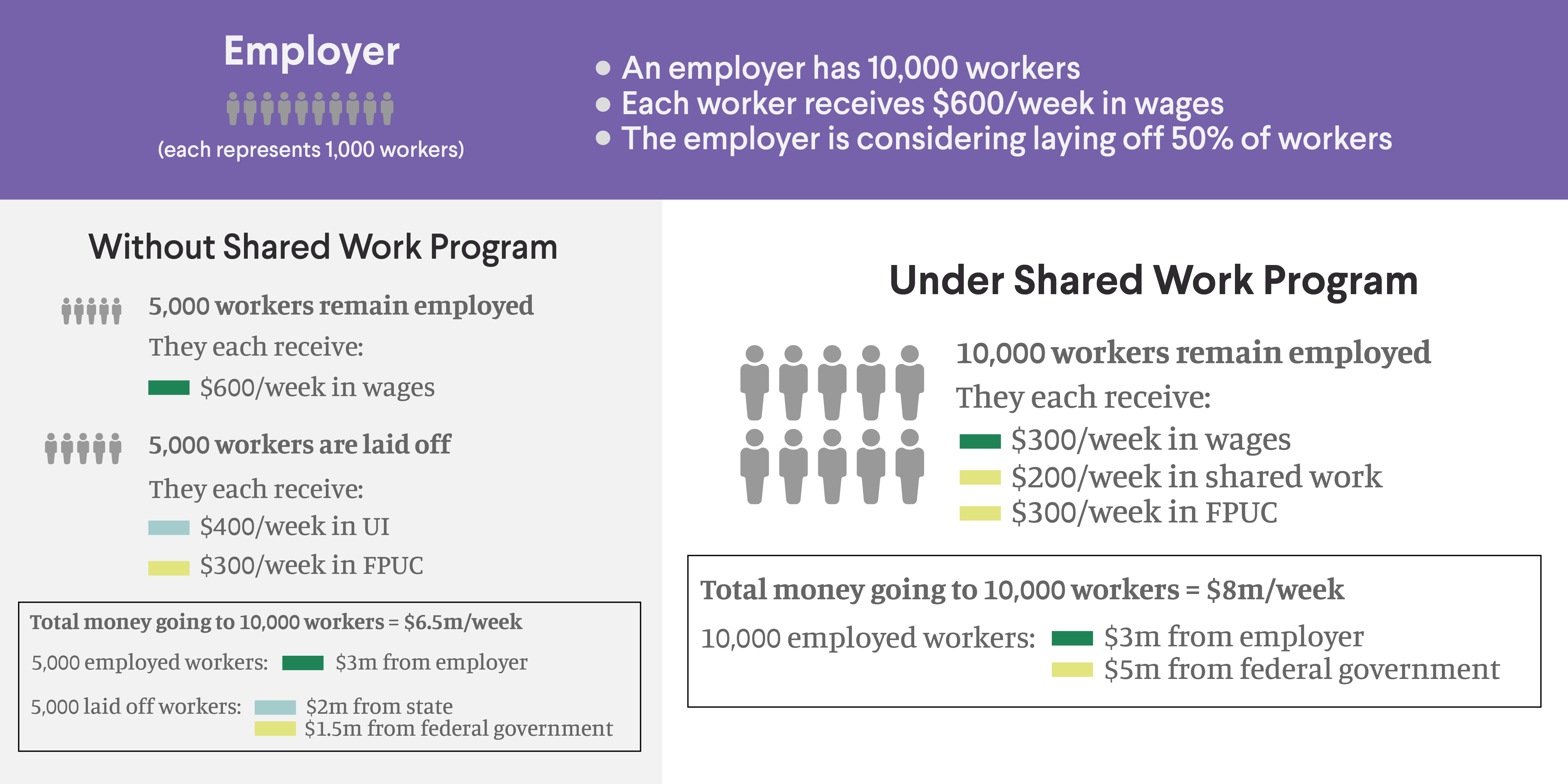Shared Work allows states to partner with employers to avoid layoffs by temporarily reducing hours for all workers, while providing prorated unemployment insurance benefits to all participants to help replace lost wages. Federal pandemic relief legislation has enhanced Shared Work by making participants eligible for additional relief payments and covering some of the cost of state UI benefits. Thus, while Shared Work programs are beneficial even under ordinary economic conditions, they are an even more powerful tool during the ongoing crisis. Shared Work programs could help states prevent mass layoffs, direct federal dollars to workers, and save state budgets billions in avoided unemployment payments.

In “Shared Work: The Little-Known Program that Could Prevent Layoffs, Relieve State Budgets, and Boost the Economy”, Kitty Richards and Emily DiVito outline the particular benefits of Shared Work in the current economic crisis; analyze recent unemployment data to demonstrate the scale both of potential savings to states and of additional payments to workers when states activate Shared Work; and offer policy recommendations to help states maximize the impact of Shared Work on workers, businesses, and state budgets.

